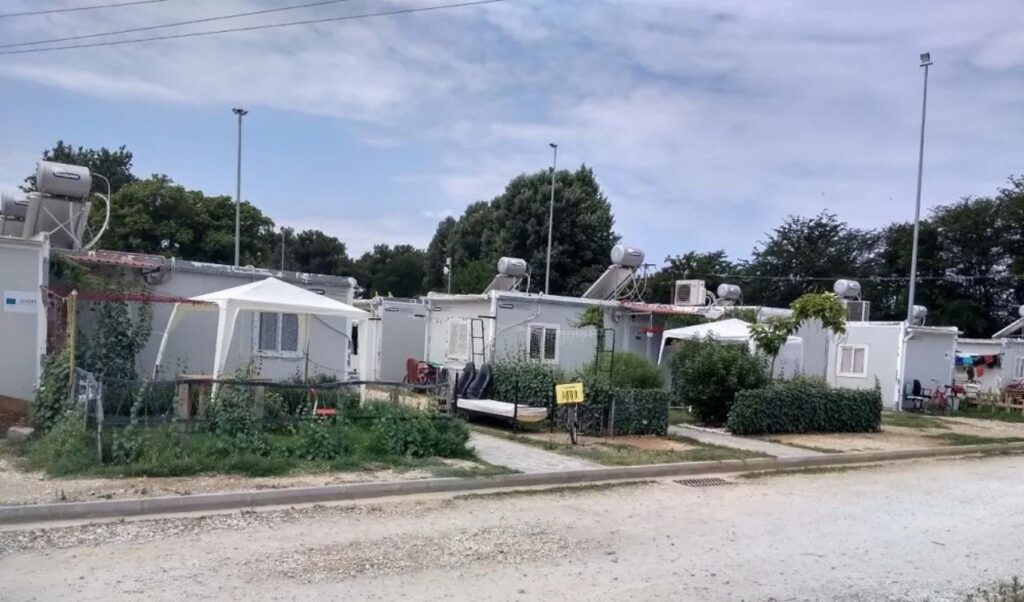The Ministry of Migration released 21 questions and answers to clarify the key points of the new bill titled “Reform of framework and procedures for returns of third-country nationals,” which was approved by Parliament.
As Minister Thanos Plevris stated, the new legislative regulation will eliminate the possibility of legalization after years of illegal stay and will stipulate that illegal residence constitutes a criminal offense carrying prison sentences.
Ministry of Migration: 21 questions and answers about the bill
1) What changes in the definition of “country of return”?
The concept is expanded to include not only the country of habitual residence, but also safe third countries and first countries of asylum, provided the application is rejected as inadmissible.
2) Regarding “risk of absconding,” what does the bill provide?
The criteria become more objective and strict. Examples: lack of stable housing, changing location without notification, and refusing identification or biometric collection.
3) What is the practical benefit of these changes?
It reduces the risk of delays, accelerates returns, and limits the phenomenon of so-called asylum shopping.
4) What will be the new deadline for voluntary departure?
It’s reduced from 25 days to 14. In exceptional cases it can be extended up to 60 days, instead of the 120 that applied until now.
5) Electronic monitoring is also added. What does this mean?
It provides an intermediate solution between complete freedom and detention. This way we can better monitor the implementation of voluntary departure.
6) What does the administration gain?
Costs are reduced and compliance is enhanced without requiring immediate detention.
7) In which cases does the entry ban to Greek territory become mandatory?
When there is a risk to public order, national security or public health.
8) And for how long can it be valid?
Up to 10 years, with possibility of extension for another 5.
9) What message does this change send?
That there is no tolerance for re-entry of violators. It’s a deterrent and protective measure for our society.
10) What penalties are provided for illegal residence?
Minimum imprisonment of two (2) years and minimum fine of 5,000 euros.
11) Is suspension possible?
Only if the violator departs voluntarily. In this case, the suspension is activated upon departure.
12) Why such a strict framework?
The goal is to emphasize the criminal wrongfulness of illegal stay for the Greek legal order, which does not tolerate the presence on its territory of a foreigner who has lost that right.
13) What changes does the bill bring to administrative detention?
The grounds are expanded to include security issues. Also, appeals against detention no longer have suspensive effect. Finally, the maximum duration is extended from 18 to 24 months with six-month reviews.
14) Why was this extension deemed necessary?
To give authorities adequate time for identification and issuance of travel documents, as well as for protecting public security.
15) What are the new penalties for those who enter or re-enter illegally?
-For illegal entry, imprisonment of at least 2 years and fines of at least 5,000 euros.
-For illegal re-entry by those registered on unwanted person lists: imprisonment of at least 3 years and increased monetary penalty of at least 10,000€.
-Conversion/suspension of penalty is excluded; suspension possible only if the perpetrator departs voluntarily from Greece, whereby suspension begins from departure.
16) What is the objective?
To discourage re-entry after removal and show that rules have consequences.
17) What changes for those who remain illegally for over 7 years?
The possibility to obtain a residence permit solely due to their prolonged presence is eliminated.
18) With what goal?
So there is no incentive for non-compliance and to connect residence with legal procedures.
19) How will abuse of the asylum system be limited?
With stricter rules for subsequent applications and new fast-track return tools in abusive cases.
20) What does this mean in practice?
That the procedure will be accelerated, resources will be directed to genuinely well-founded applications, and the system will become more reliable.
21) What will be the general effects of the bill?
Illegal residence and recidivism will be reduced, thanks to stricter penalties and faster procedures.
The Asylum Service, Greek Police and courts will be decongested.
Administrative resources will be directed to genuine international protection needs.
Legal protection will be strengthened, with clearer definitions and criteria.




